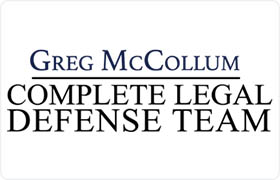Sullivans Island DUI-DWI Lawyer, South Carolina
Sponsored Law Firm
-
 x
x

Click For More Info:
-
Greg McCollum Complete Legal Defense Team
1012 38th Avenue North Suite 202 Myrtle Beach, SC 29577» view mapCriminal Defence Law Complete Legal Defense Team
Our goal at the Complete Legal Defense Team is to examine the facts and circumstances completely and help our clients.
800-634-0690
FREE CONSULTATION
CONTACTJohn L Drennan
Traffic, Lawsuit & Dispute, DUI-DWI, Criminal
FREE CONSULTATION
CONTACTCameron Jane Blazer
Gaming & Alcohol, White Collar Crime, Slip & Fall Accident, DUI-DWI
Status: In Good Standing
James Edward Courtney
DUI-DWI, Civil Rights, Personal Injury, Accident & Injury
Status: In Good Standing
Kevin Holmes
Social Security -- Disability, Workers' Compensation, DUI-DWI, Bed Bug
Status: In Good Standing
 Greg McCollum Myrtle Beach, SC
Greg McCollum Myrtle Beach, SC AboutGreg McCollum Complete Legal Defense Team
AboutGreg McCollum Complete Legal Defense Team Practice AreasExpertise
Practice AreasExpertise
